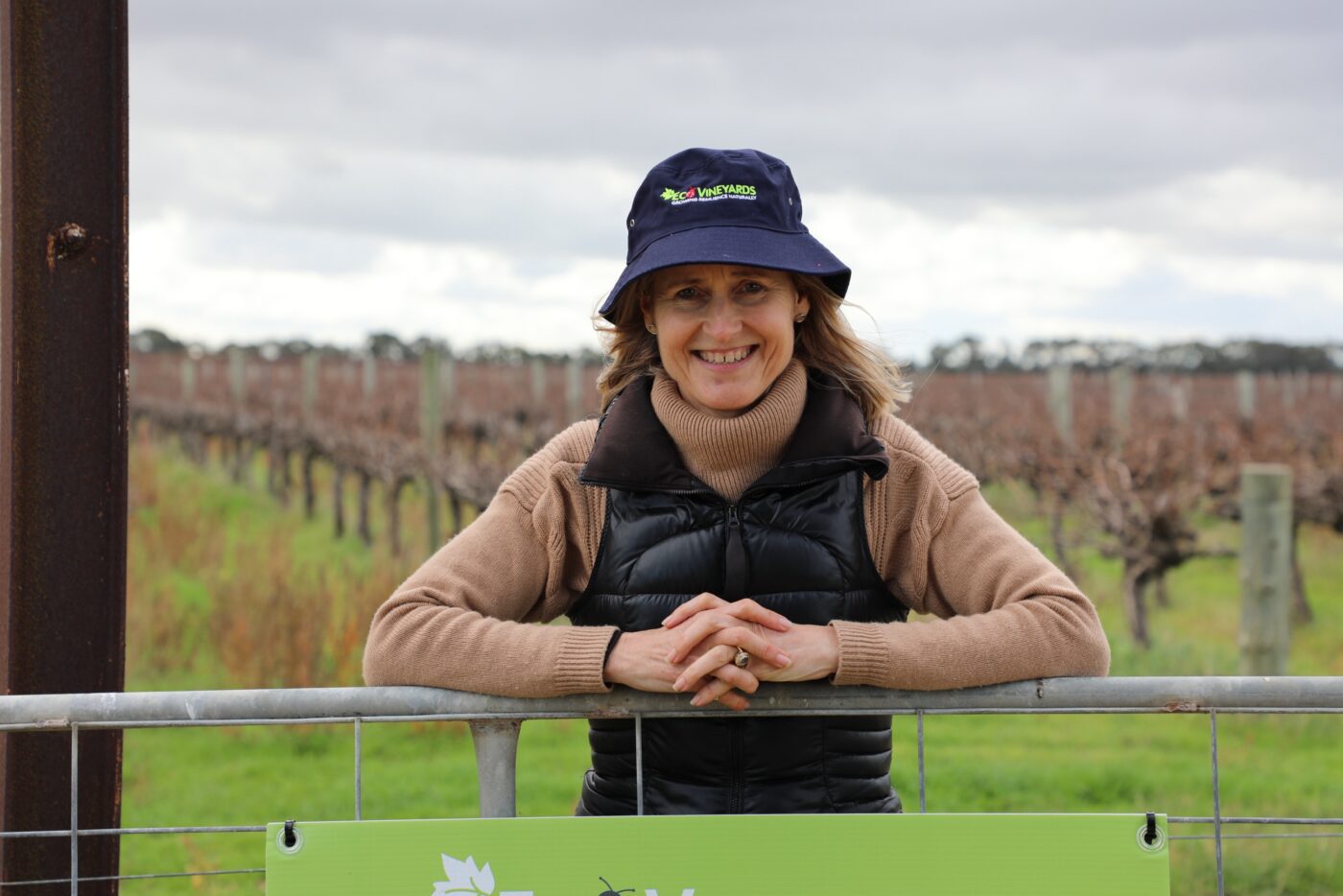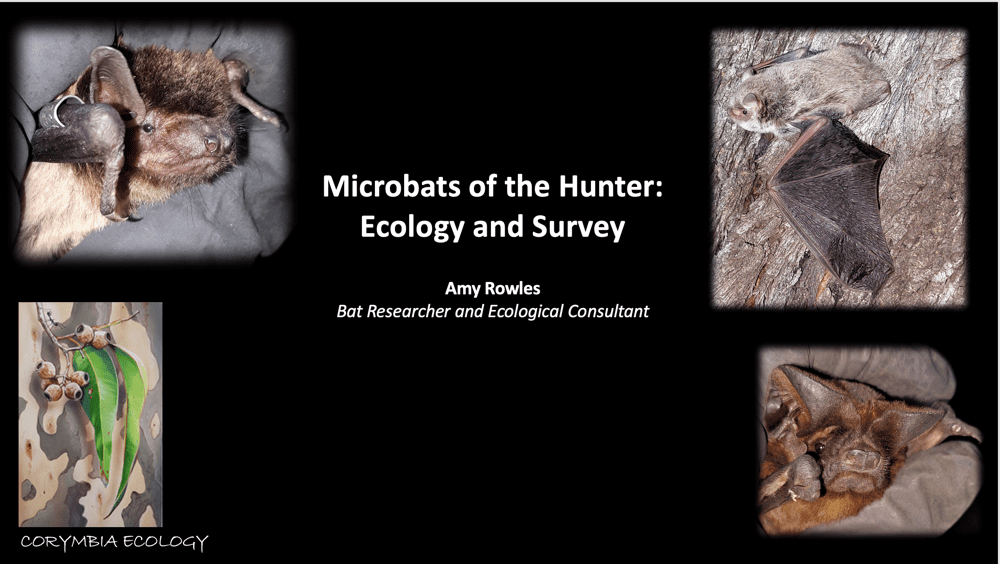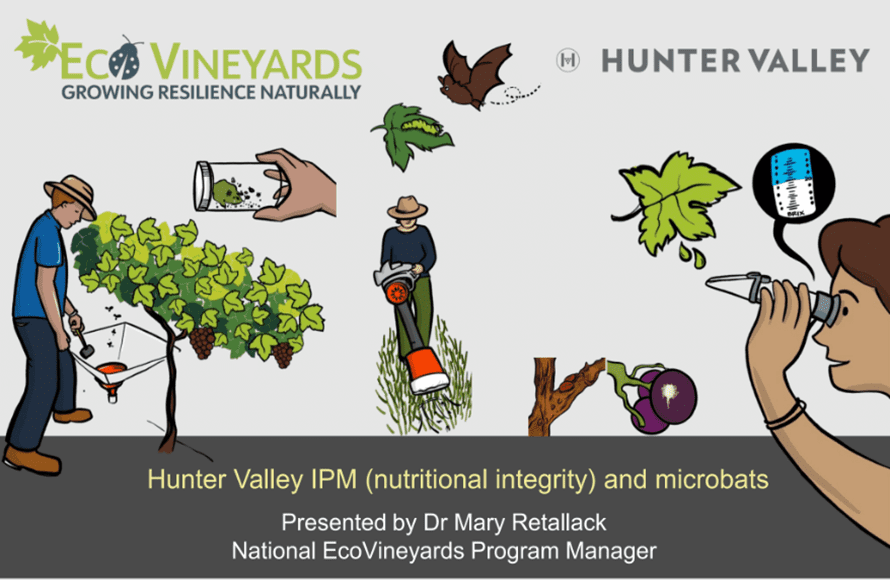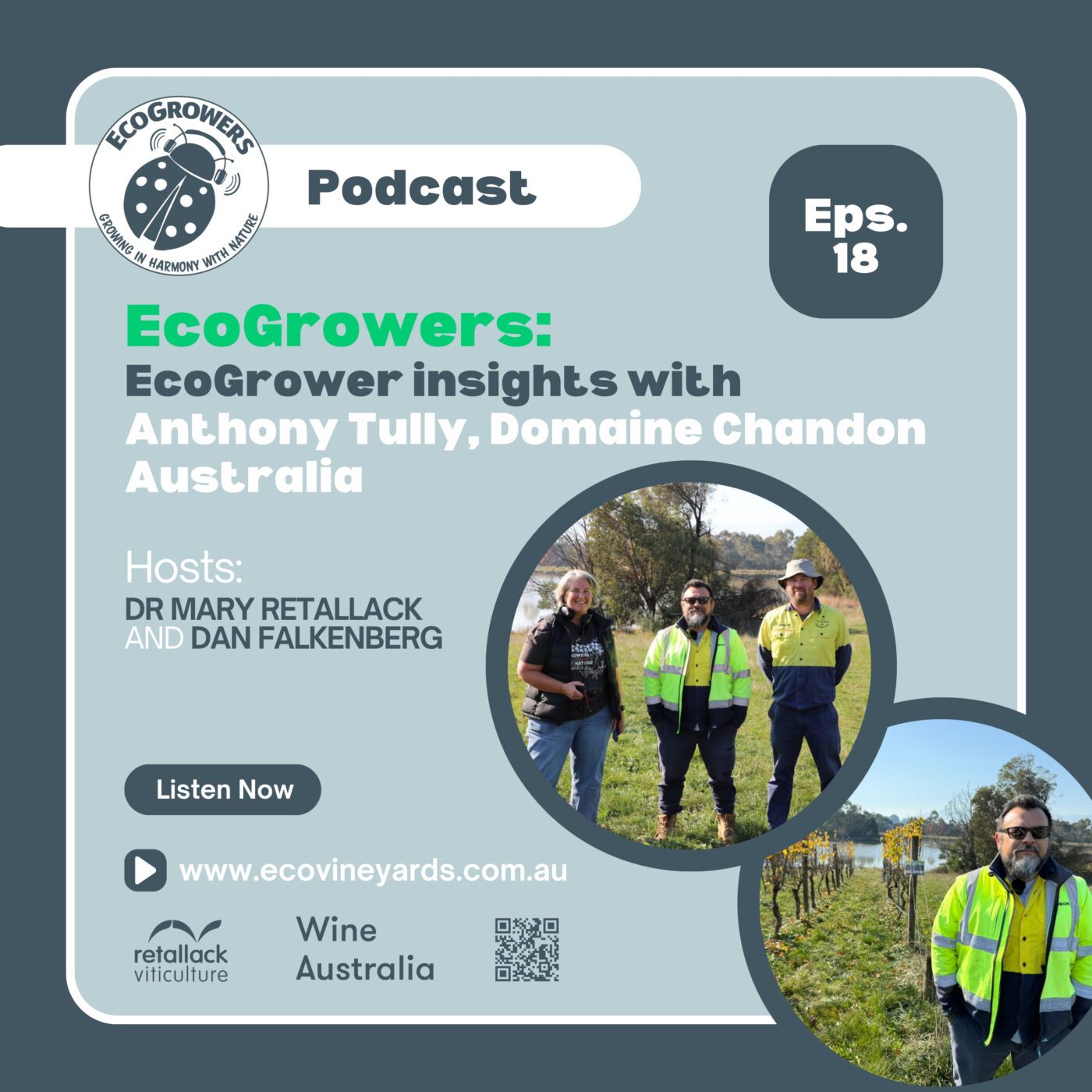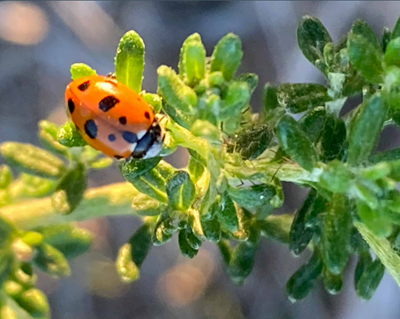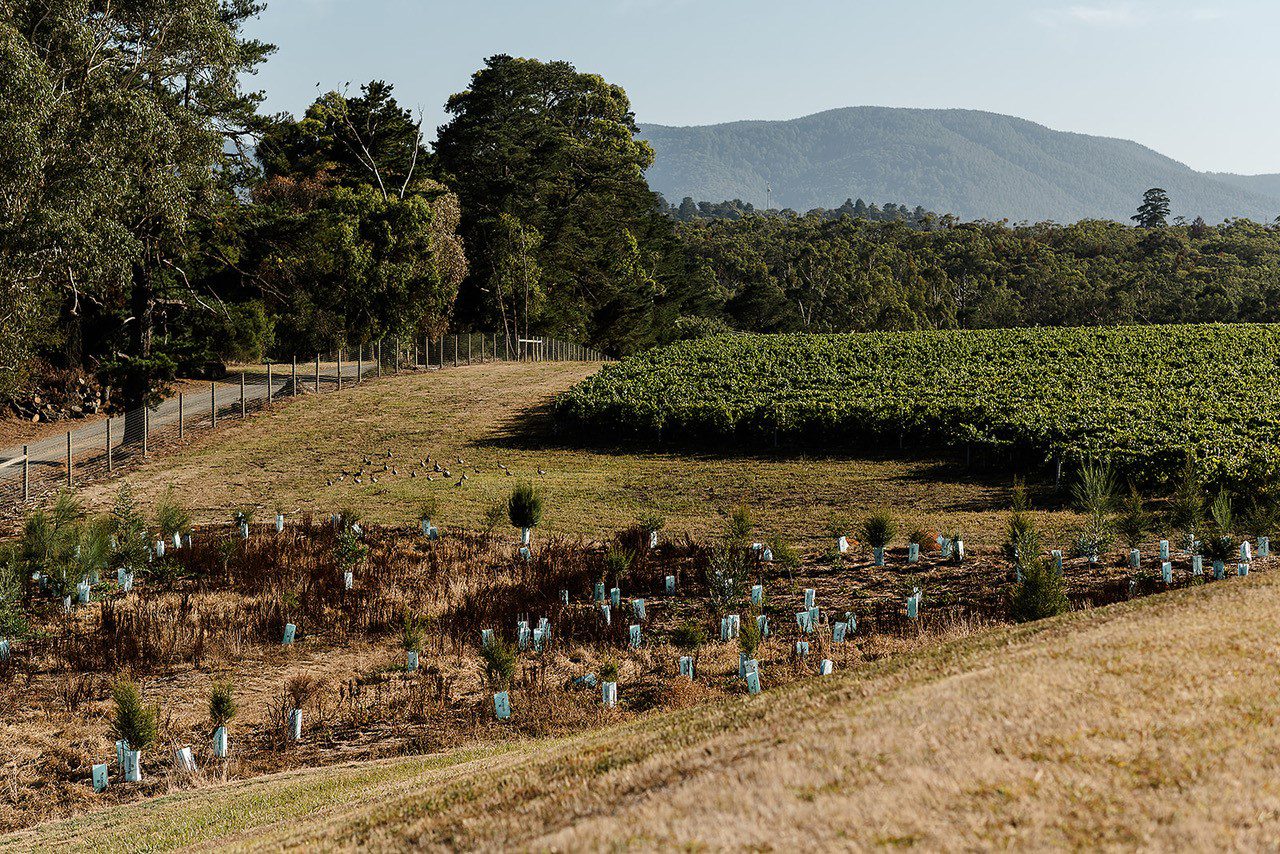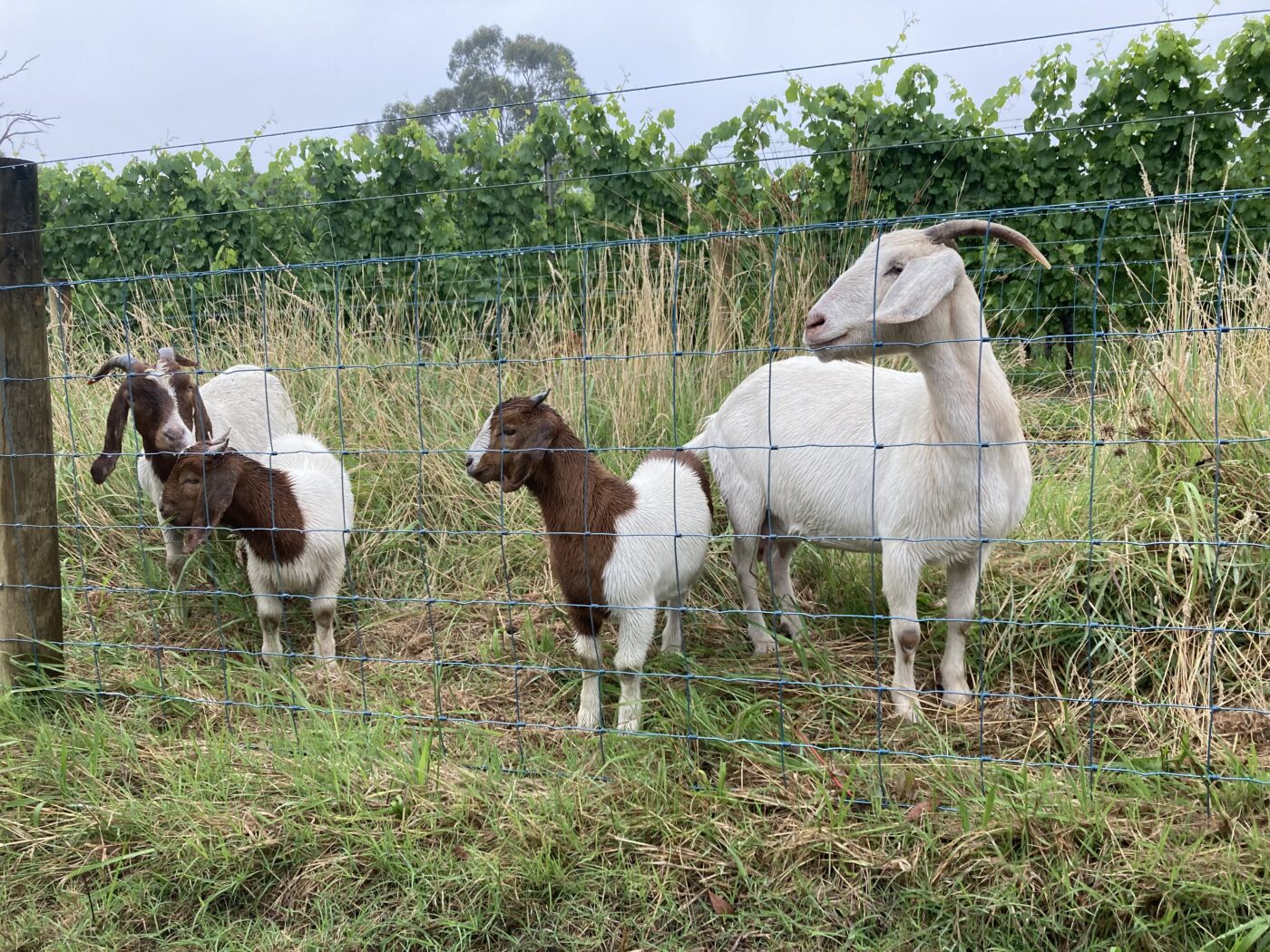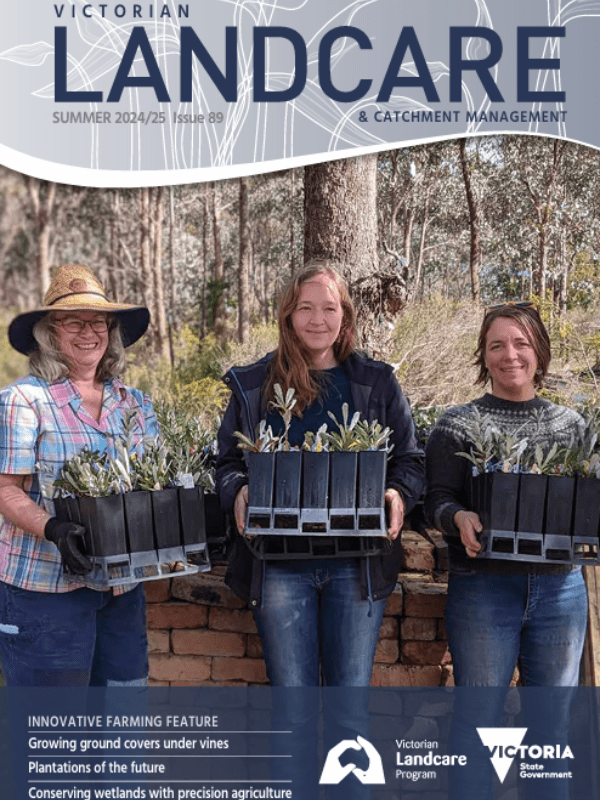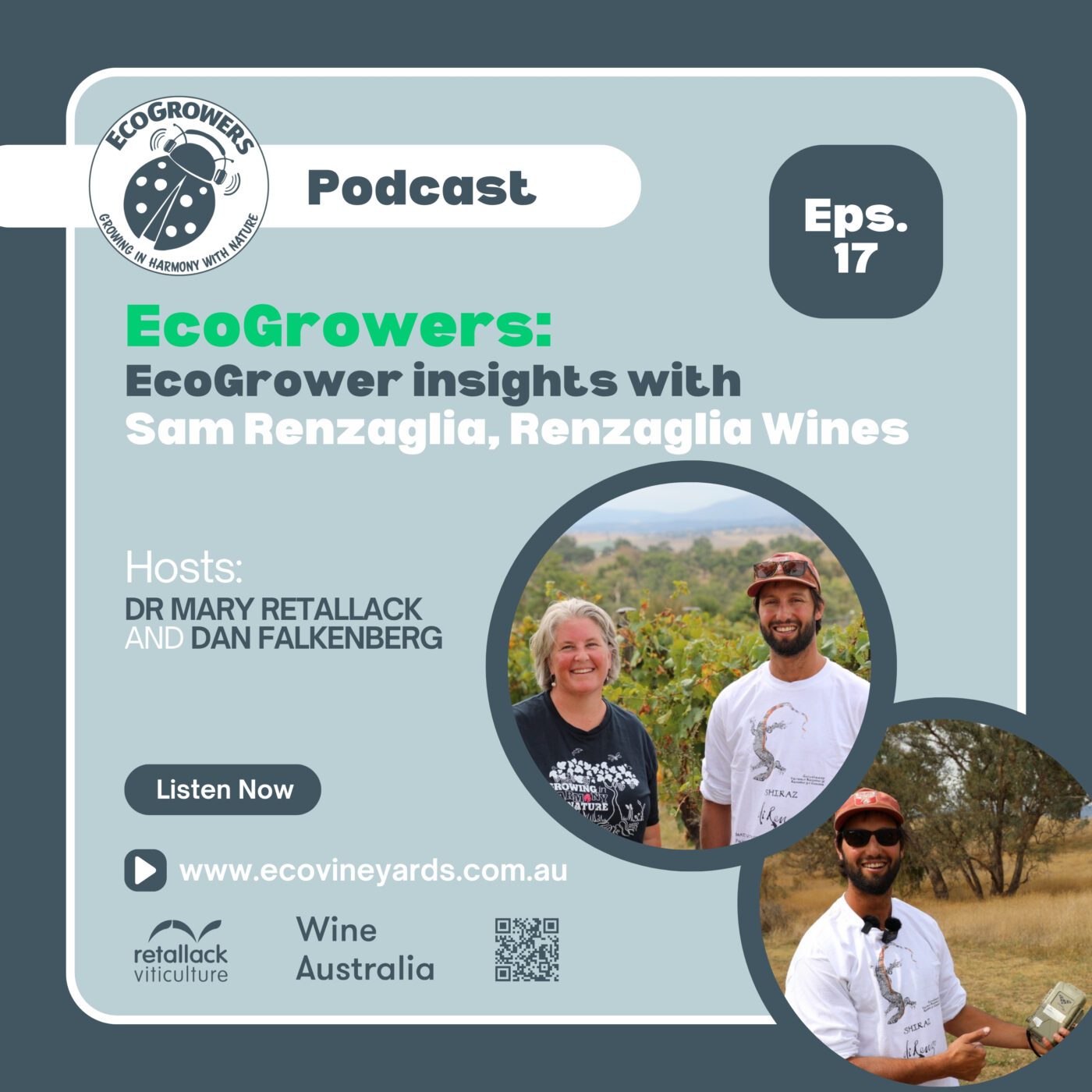Date: June 2025 EcoGrower: Lucy Verco Region: Langhorne Creek, SA“The EcoVineyards program has provided us with a wealth of information and a starting point for us to know what and how to plant native species and improve biodiversity alongside our vineyard area. The educational lectures and support along the way have been invaluable.” Lucy VercoREAD THE FULL CASE STUDY
Video
Hunter Valley IPM (nutritional integrity) and microbats: Part 3
In this video, Amy Rowles, Corymbia Ecology introduces us to the wonderful world of microbats, their capacity to provide biocontrol of insect pests in vineyards, and how to monitor for their presence. Microbats of the Hunter Valley: ecology and survey by Amy Rowles, Corymbia Ecology WATCH HERE
Video
Hunter Valley IPM (nutritional integrity) and microbats: Part 2
In this video, Dr Mary Retallack, Retallack Viticulture discusses the following topics: How to speed up IPM scouting in the field Biocontrol of grapevine insect pests and monitoring Access to a new Best practice management guide on functional biodiversity The impact of agrochemicals on natural enemies Local microbat species and how to monitor them WATCH HERE
Video
Hunter Valley IPM (nutritional integrity) and microbats: Part 1
In this video, Dr Mary Retallack, Retallack Viticulture discusses the following topics: The link between plant health and insect attack (esp. sap sucking insects scale and mealybugs). How to measure leaf brix and why it is important? An introduction to the plant health pyramid WATCH HERE
Podcast
EcoGrowers Podcast Episode 18: EcoGrower insights with Anthony Tully, Domaine Chandon Australia
Thank you for listening! We are delighted to present the EcoGrowers podcast where we discuss practical ways of growing in harmony with nature! Additional resources We invite listeners to join the EcoVineyards community via Facebook or Instagram @EcoVineyards, explore the EcoVineyards website and sign up to our monthly newsletter. About Dr Mary Retallack Mary is the founder and custodian of …
Case study
Quealy Winemakers
Date: June 2025 EcoGrowers: Sarah Saxton and Kathleen Quealy Region: Mornington Peninsula, VICAbout this project “Now we have some confidence in what species might work on a larger scale (which we are planning for Autumn 2025) and understand sowing rates for these native seeds a bit more. It’s been a great experience to trial different sowing methods, different seeds, and it …
Case study
Centare Vineyards
Date: July 2025 EcoGrower: Nicole Esdaile Region: Yarra Valley, VIC“The EcoVineyard initiative has been great for us. We are well on the way to achieving 3,000 new plants in the ground and knowing what can be achieved with a little support and direction has sharpened our focus on ignited enthusiasm for further restoration and biodiversity projects across the property. We …
Case study
Yarra Yering
Date: June 2025 EcoGrowers: Sarah Crowe and Andrew George Region: Yarra Valley, VIC“This demonstration site is about finding innovative and cost effective ways to support our sustainable winegrowing credentials.” Sarah Crowe, Winemaker, Yarra YeringREAD THE FULL CASE STUDY
Podcast
EcoGrowers Podcast Episode 17: EcoGrower insights with Sam Renzaglia, Renzaglia Wines
Thank you for listening! We are delighted to present the EcoGrowers podcast where we discuss practical ways of growing in harmony with nature! Additional resources We invite listeners to join the EcoVineyards community via Facebook or Instagram @EcoVineyards, explore the EcoVineyards website and sign up to our monthly newsletter. About Dr Mary Retallack Mary is the founder and custodian of …

